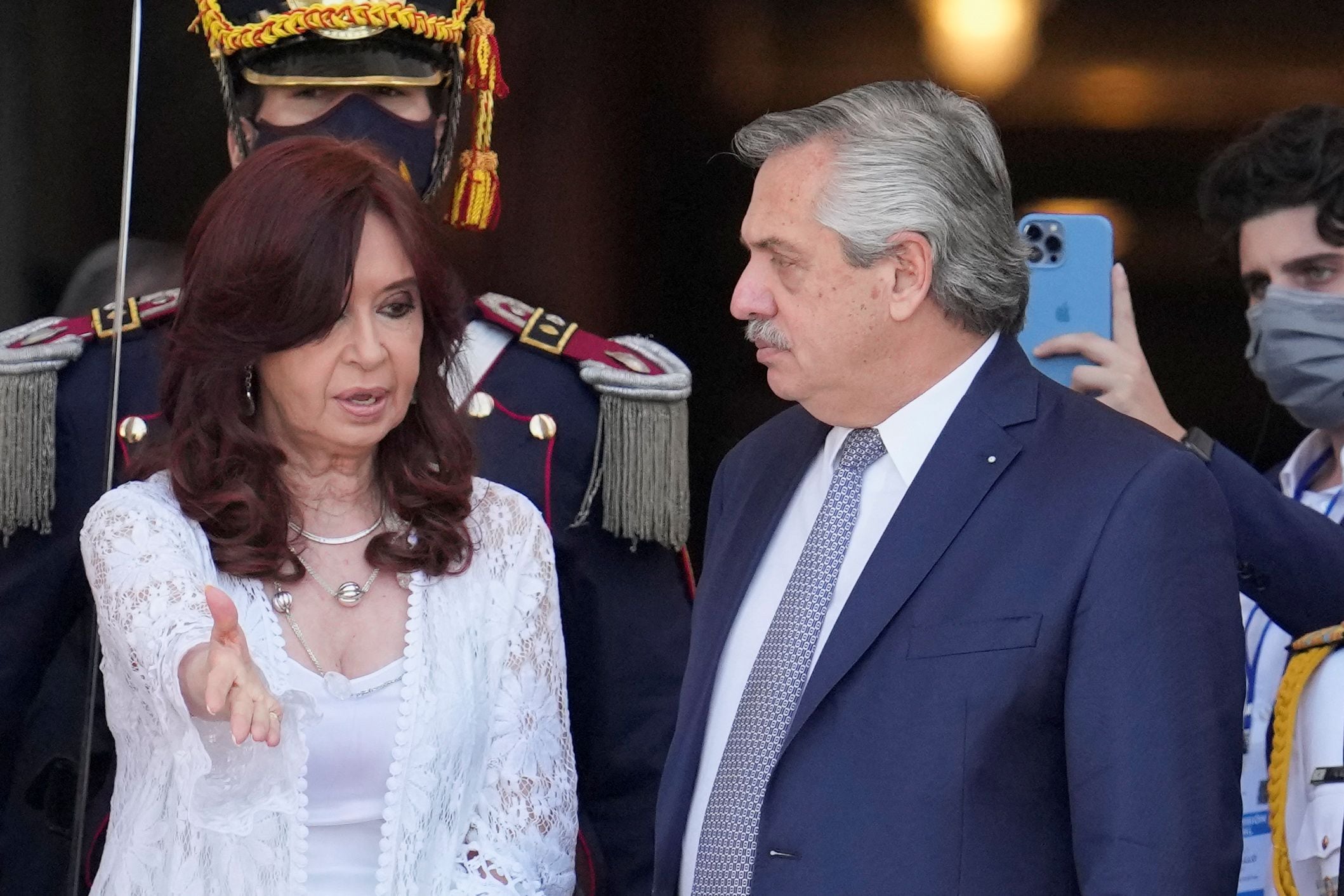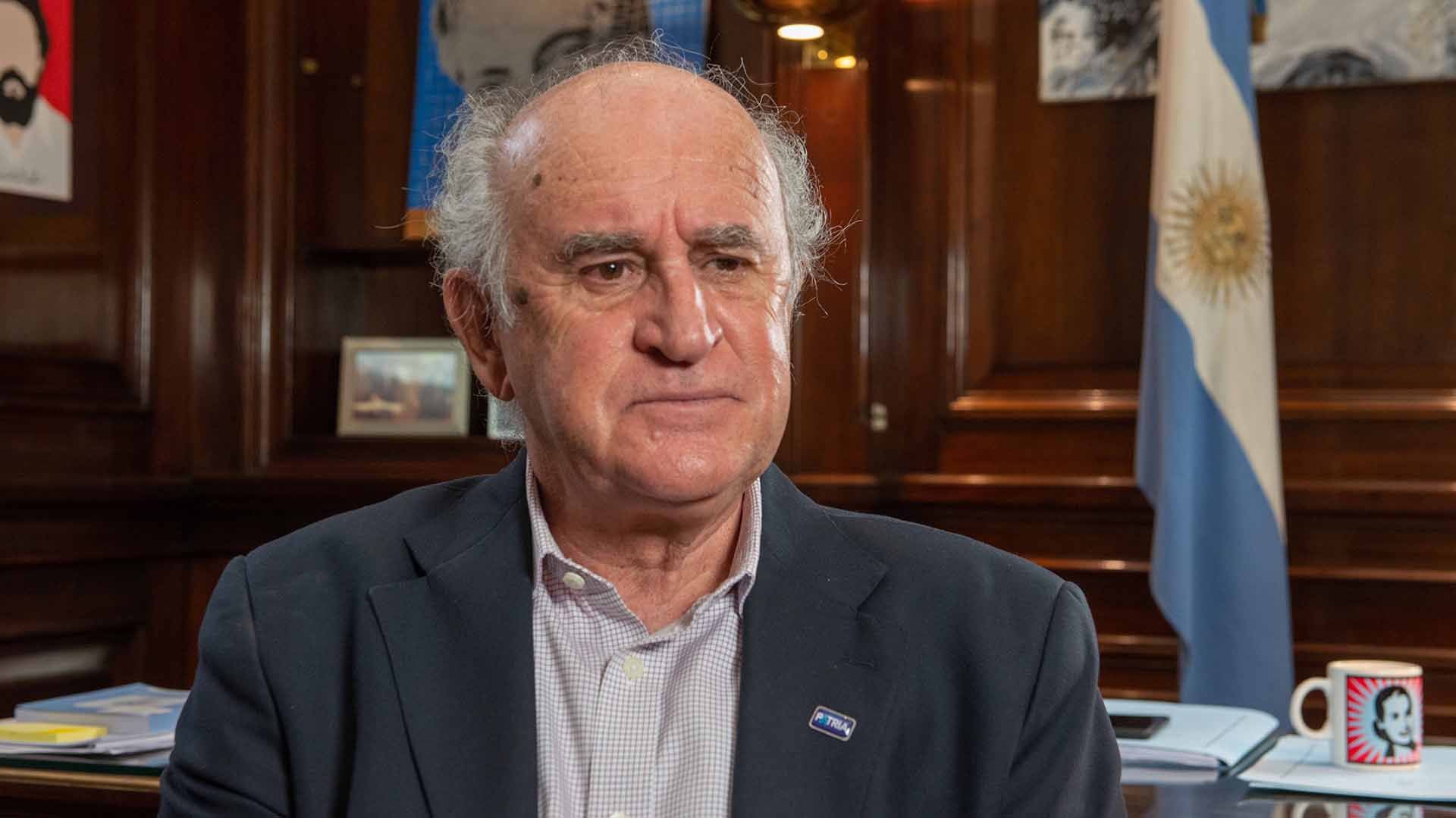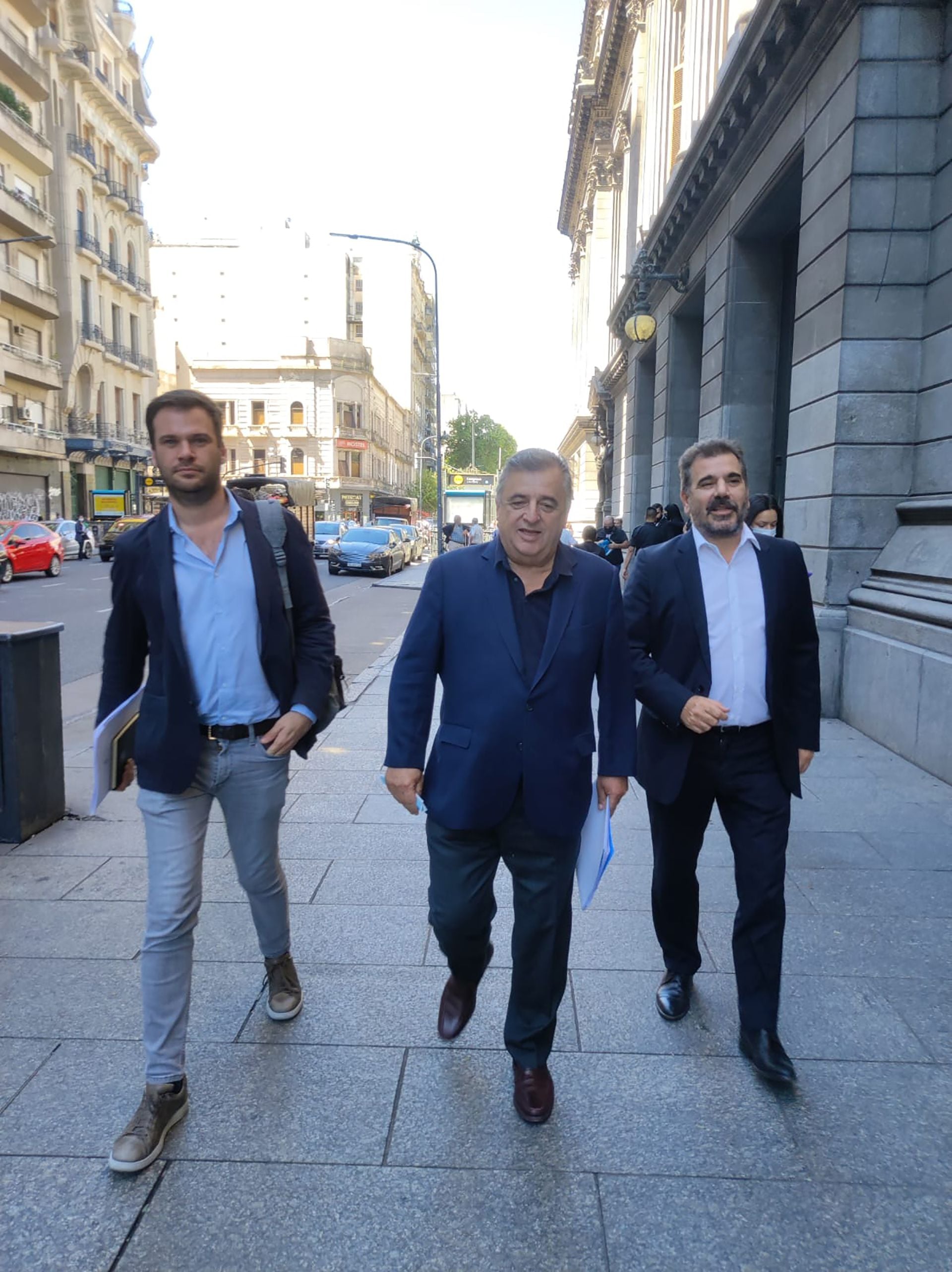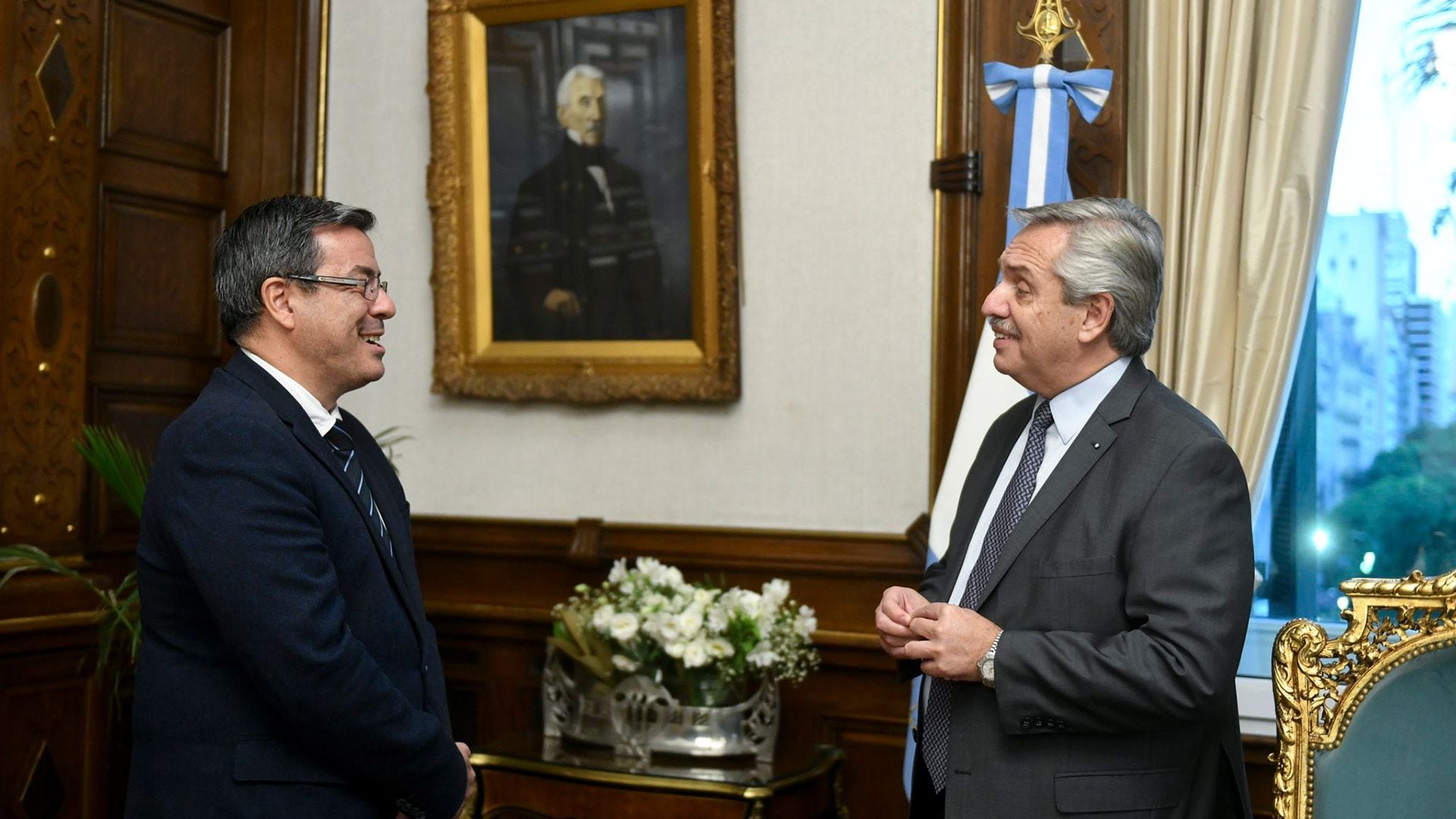The discussion over the law that enabled the National Executive to refinance Mauricio Macri's debt with the International Monetary Fund ended up shining a light on the internal ones that are lived within the fronts, both of the ruling party and the opposition. The former are divided between “Albertists and Kirchnerists”, while in the latter the crack is between “falcons and pigeons”.
The battlefield chosen so far is the Congress of the Nation. In a year that is not electoral and in which all the sectors in conflict are represented, the discussion for each space of power reflects the fight in the background. The assembly of the committees, both in the upper and lower houses, will be the first of the battles, but it will be a fundamental skirmish in order to start programming the parliamentary agenda.
The formation of the commissions was frozen by the discussion of the IMF law, but those coincidences that showed officialism and opposition to modify the text and approve it could be a memory from now on if differences within coalitions are not resolved in the short term.

In the Senate, the photo showed two very different groups on the part of the ruling party: the Kichnerists could be seen voting against and one Cristina Kirchner absent, in front of a score of legislators who supported the draft agreement with the IMF. However, the dynamics of the upper house show that, even in differences, inward and outward dialogue is open and constant.
The final embrace between the radical Luis Naidenoff, the head of the Frente de Todos bloc, José Mayans and pro-government senator Anabel Fernández Sagasti - who voted against the Executive's bill and published the document justifying that vote - and the talk between Senators Juliana Di Tullio and Martín Lousteau , show that, despite the differences, the confrontation between blocs and sectors has another way.
But that certain tranquility can be broken very quickly in the land of Cristina Fernández de Kirchner, because in the coming days the treatment of one of the most important issues for this year in the various committees will begin to be developed: the draft sent by the Executive to reform the composition of the Council of the Magistracy.
With the end of the IMF's treatment, the Frente de Todos has decided to move forward with the discussion regarding the Council as Congress must comply with a Court ruling that declared the unconstitutionality of the current law that reduced the body's membership and has until April 14 to have a new law. In the pro-government bloc, the interest in moving forward is because they seek that the new conformation does not include members of the Supreme Court, something that is asking for Together for Change.

Kirchnerism advanced and moved rapidly in the Senate and the issue will be discussed in some of the few commissions that were formed. And, in both cases, they are in the hands of the group linked to the Vice-President, since it will pass through the Justice Committee chaired by Oscar Parrili and Constitutional Affairs led by Eduardo Snopek. Both voted against the draft agreement with the IMF.
In this way, the sector linked to Cristina Kirchner today remained in command of two central commissions in everything that has to do with discussions related to justice, the appointment of judges and, a little further, the implementation or not of the decision of the Attorney General of the Nation, something that has been paralyzed since two years ago.
In the case of Juntos por Cambio, in the upper house the block is more buckled, although there are dissidents. The strong core is in the hands of radicalism with Alfredo Cornejo, Luis Naidenoff and Martín Lousteau. Although they respond to different lines within the UCR, they function as a containment dam for the PRO “hawks”. This could be seen in the fact that he had only one leak when it came to voting on the agreement with the Fund, and it was from Senator Lucila Crexell, who abstained and ignored Patricia Bullrich's requests not to lend two-thirds to sit as a way to put pressure on the All Front.

Lost Steps
Where the struggles are most openly shown is in the Chamber of Deputies. The number of legislators, the diversity of the extractions of each and the blocs makes reaching a consensus much more complex.
The proof of this is that the commissions are not yet formed, except for the Budget and Finance, which were necessary to be able to deal with the agreement with the IMF.
“We are talking and there is more movement,” acknowledged a voice from Together for Change. “We understand that next week there will be definitions, but the internal ones of each of the blocks are delaying it,” said another deputy from one of the minority blocs.
In the Frente de Todos, Máximo Kirchner's resignation from the bloc's leadership and the refusal of the legislators of La Campora to accompany the agreement ended up erupting the bloc's internal unrest. His way of driving based on personalism and with a limited group of deputies upset the rest of the bloc's legislators, and now “albertism” - understood by everyone who is not from the group of Máximo Kirchner or Christinist - is advancing in places of power and that is seen in the committees.

The head of the Chamber of Deputies, Sergio Massa, wants to move forward with a series of economic projects such as the treatment of incentives for the automotive industry, agribusiness and construction, but, again, the internal ones are delaying everything.
“The problem is the presidencies of commissions such as General Legislation, Constitutional Affairs, Justice, Defense and Foreign Affairs, Agribusiness and Education. Albertism wants to run to La Campora from the places of decision of everything that implies governance and these commissions are central. The Campora resists and the debate is going on today is what is the margin for pressure without breaking the bloc, because what Germán Martínez - president of the Frente de Todos bloc - does not want it to become an interblock with the hard sectors on the outside,” they explained to the Infobae consultation.
On the Juntos por el Cambio side, the situation is similar, but it has an additional spice: the new composition of the interblock that went from three to ten benches. In the midst of this, it is necessary to balance in the PRO sector the desires of the “tough” who respond to Patricia Bullrich and Mauricio Macri, such as deputy Omar de Marchi and the dialoguists closest to Larretism. The same thing happens between the two blocs of radicalism and the requests of Mario Negri (UCR) and Rodrigo De Loredo (Evolution).
The context that the Chamber of Deputies is experiencing today shows that internal problems paralyze the functioning of the Chamber of Deputies. Nobody wants to take the initiative to get a subject to the precinct because they are not assured of the operation of the bloc due to unresolved struggles. If the Council of the Judiciary comes from the Senate, the decision in Together for Change and the All Front is to move forward in one session, but if no one is going to push the treatment of another issue because they do not want to risk having a December - with a week apart the government lost the Budget vote and the opposition to that of Personal Property-.
The Front of All and Together for Change is trying to resolve its internal differences and the committees will serve, in part, for that, but also to put the Congress into operation without having to go to the venue with the risk they have today of losing a vote because of their own.
KEEP READING:
Últimas Noticias
Debanhi Escobar: they secured the motel where she was found lifeless in a cistern
Members of the Specialized Prosecutor's Office in Nuevo León secured the Nueva Castilla Motel as part of the investigations into the case

The oldest person in the world died at the age of 119
Kane Tanaka lived in Japan. She was born six months earlier than George Orwell, the same year that the Wright brothers first flew, and Marie Curie became the first woman to win a Nobel Prize

Macabre find in CDMX: they left a body bagged and tied in a taxi
The body was left in the back seats of the car. It was covered with black bags and tied with industrial tape
The eagles of America will face Manchester City in a duel of legends. Here are the details
The top Mexican football champion will play a match with Pep Guardiola's squad in the Lone Star Cup

Why is it good to bring dogs out to know the world when they are puppies
A so-called protection against the spread of diseases threatens the integral development of dogs



